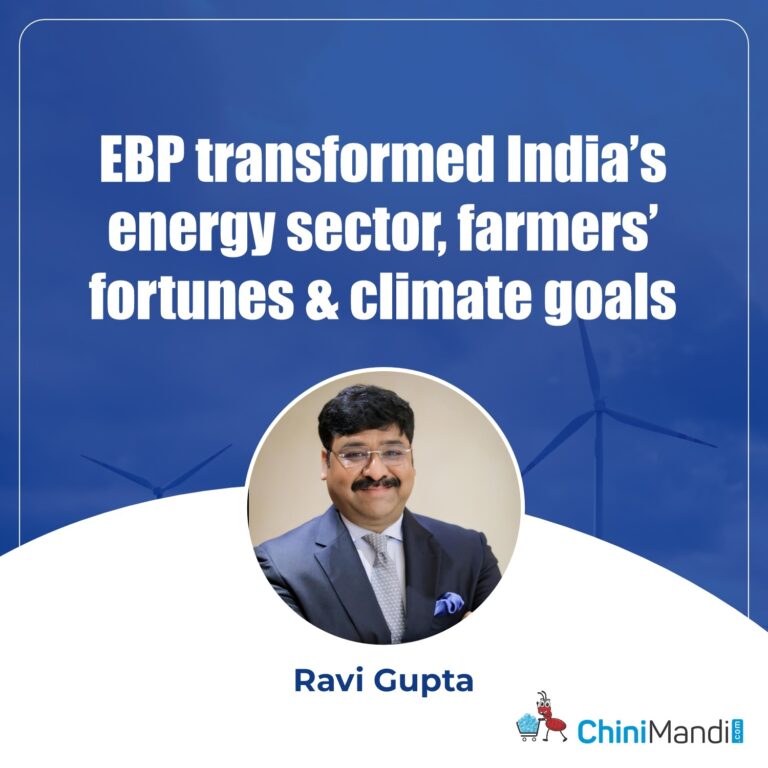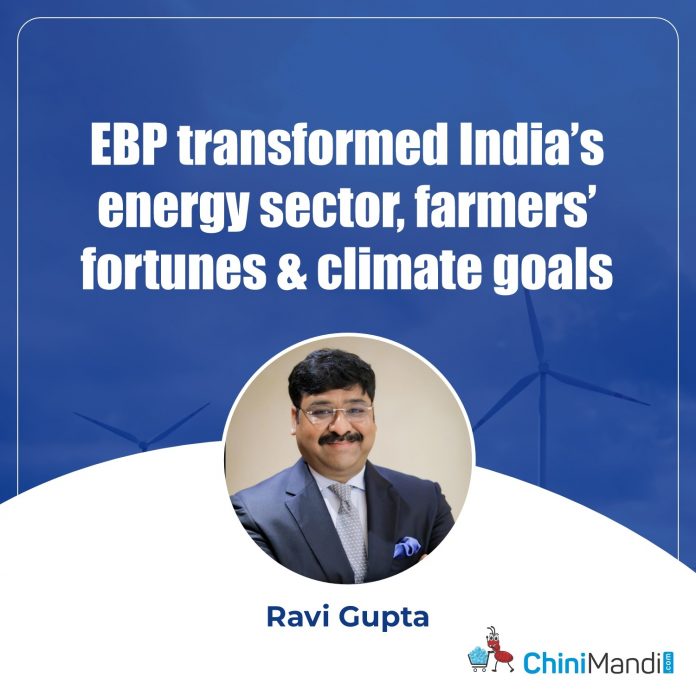In a candid discussion, Ravi Gupta, Chairperson, Sugar BioEnergy Forum, Indian Federation of Green Energy, and Executive Director, Shree Renuka Sugars underscores ethanol’s role in transforming India’s energy and farm economy. He calls for encouraging Flex Fuel Vehicle (FFV) with GST incentives, stressing that ethanol and EVs can co-exist.
Q1. Let’s address the elephant in the room: we are hearing all sorts of noises regarding E20 not being safe for vehicles. How has the ethanol programme benefited the country?
Ans: Let me come to your first question first. Much has been asserted by the experts in this field already, so it does not need a comment from me. We did not reach 20% ethanol blending in a day. It came out of well well-thought-out path given in the Roadmap of Ethanol Blending, after studying all the aspects of availability and feasibility. All stakeholders were involved in the process of finalising the strategy. There have been extensive studies done by the Automobile Research Association of India (ARAI), standalone automobile companies, IIT Delhi, etc, before the launch of 20% blended fuel. And E-20 have been launched post these studies only.
As you know, the intrinsic properties of ethanol fuel, in fact, help burn petrol better, which is a boon for car engines. I know there are views against 20% ethanol going viral in the last few days, but I am hopeful that the right awareness shall be created by the experts during the course of time.
As far benefit of ethanol is concerned, no one can deny that the ethanol blending programme has benefited the country immensely. It has not only benefitted our farmers and industry, but it has also brought a renaissance in green energy thought process in the country. Before 2014, there were hardly any discussions on green energy. No one used to talk about CBG, SAF, Green Hydrogen or any other green energy earlier; now it has become a national goal. The success of the ethanol blending programme has provided experience and confidence both for the policy makers and producers to foray into other green energies. This is a big change, and also a crucial one.
With the increasing population, the energy needs are increasing. Rather than being dependent on fossil fuels and crude imports, it’s essential to look inward at the wealth that farmers are producing and meet energy requirements from it. Ethanol blending also brought India to the forefront of green leadership. The formation of the Green BioFuels Alliance, headquartered in India, is an example of the same.
Coming to direct economic benefits, before EBP, the sugarcane arrears of the farmers were running into Rs. 20,000 crores. It became difficult for the sugar industry to sustain itself. India was exporting sugar, giving huge incentives. Now, all these are things of the past. Farmers are being paid regularly, we can turn our surplus sugar into ethanol and use it in our country.
On the…
Read More: EBP transformed India’s energy sector, farmers’ fortunes & climate goals:




